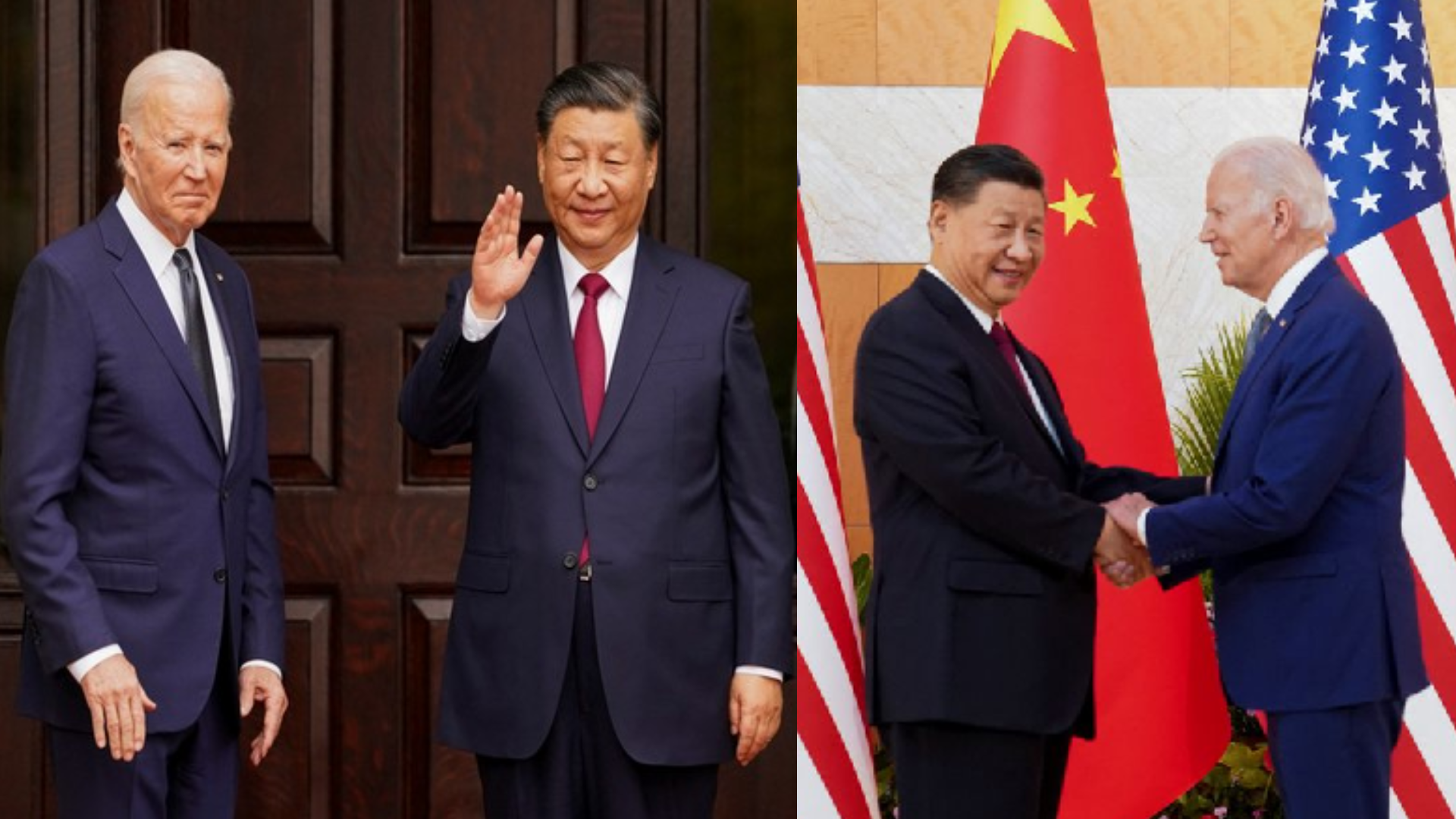










A telephonic conversation between Chinese President Xi Jinping and US President Joe Biden brought the Taiwan issue to the forefront, with Biden urging peace in the island nation and Xi labelling it an “insurmountable red line in Sino-US relations.”
According to a readout from the White House, President Biden stressed the importance of maintaining peace and stability across the Taiwan Strait, as well as upholding the principles of the rule of law and freedom of navigation in the South China Sea.
“President Biden emphasized the importance of maintaining peace and stability across the Taiwan Strait and the rule of law and freedom of navigation in the South China Sea,” the White House statement read.
In response to Biden’s remarks, Chinese President Xi made a firm declaration, asserting that the Taiwan issue represents the foremost insurmountable red line in Sino-US relations.
“Xi Jinping emphasized that the Taiwan issue is the first insurmountable red line in Sino-US relations,” stated the Chinese Ministry of Foreign Affairs.
Xi also pledged to counter any separatist activities and external support for Taiwanese independence, urging the US to translate its commitments into concrete actions.
“We will not let the separatist activities and external connivance and support of the ‘Taiwan independence’ forces go unchecked. We hope that the US will implement Mr. President’s positive statement of not supporting ‘Taiwan independence’ into action,” the statement added.
The Chinese Ministry of Foreign Affairs also issued a press release, detailing Biden’s reassurances during the conversation. Biden reiterated that the United States does not seek a “new Cold War,” nor does it aim to change China’s system, strengthen alliances against China, support “Taiwan independence,” or seek conflict with China.
The conversation between the two leaders occurred amidst escalating tensions between the nations on various contentious issues, from trade to technology to investment.
The White House statement highlighted that the two leaders engaged in a candid and constructive discussion on a range of bilateral, regional, and global issues, acknowledging both areas of cooperation and points of difference.
The call followed their meeting in Woodside, California, in November 2023, where they reviewed progress on key issues such as counternarcotics cooperation, military communication, talks on AI-related risks, and efforts on climate change and people-to-people exchanges.
Biden also expressed concerns about China’s support for Russia’s defense industrial base and its impact on European and transatlantic security. He reiterated the US commitment to the complete denuclearization of the Korean Peninsula.
Moreover, President Biden raised ongoing concerns about China’s unfair trade policies and non-market economic practices, which he argued harm American workers and families.
“The President emphasized that the United States will continue to take necessary actions to prevent advanced US technologies from being used to undermine our national security, without unduly limiting trade and investment,” the statement added.
Ahead of the call, a senior administration official indicated that the leaders would discuss the US-China bilateral relationship along with other ongoing issues.
The last time the leaders spoke by phone was in July 2022, as reported by The Hill. This recent conversation underscores the complexities and challenges present in the relationship between the two global powers.









